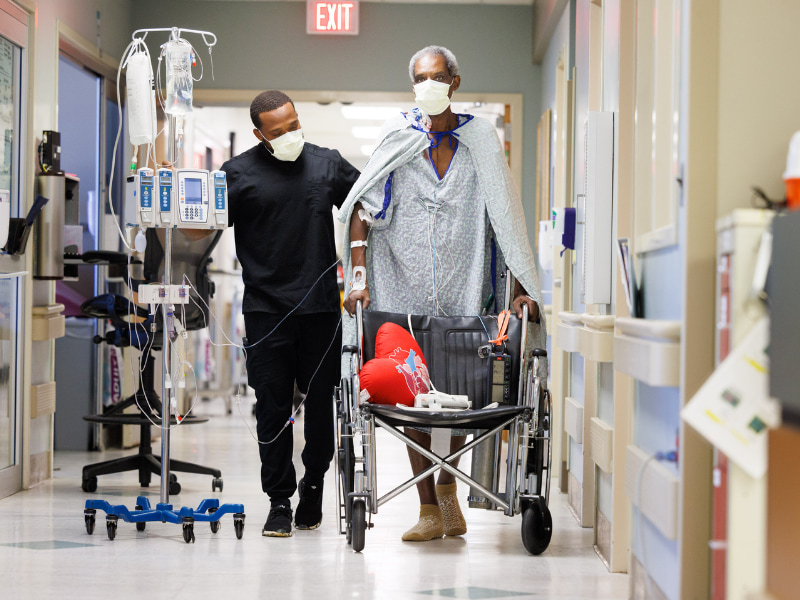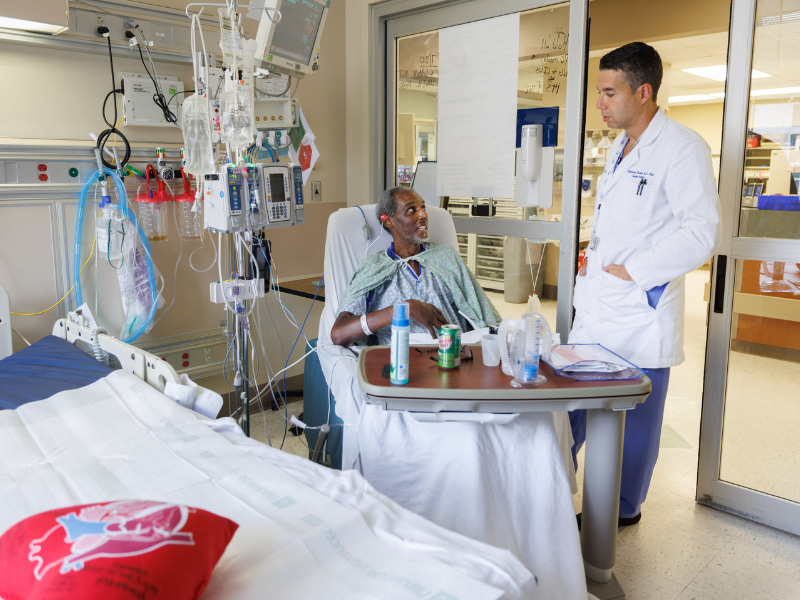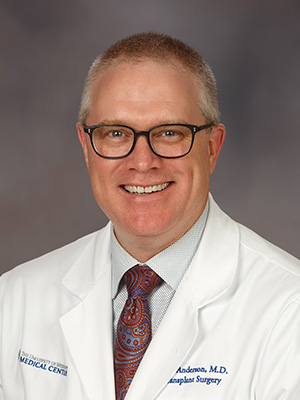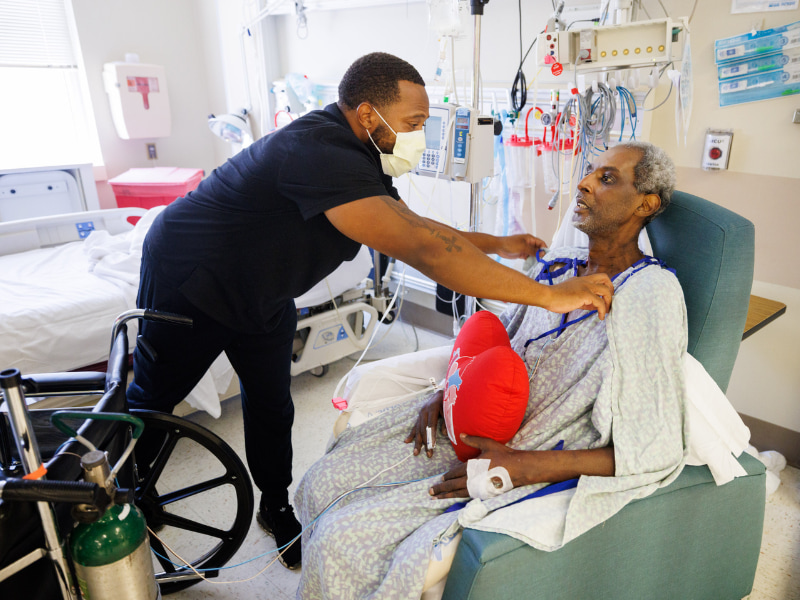Double transplant patient “blessed” by historical organ transport service

Ricky Mayers, 54, arrived at the University of Mississippi Medical Center the day before Memorial Day, a holiday to honor U.S. veterans who gave their lives in sacrifice to the nation.
The Forest resident’s body had been waging war against his heart and kidneys, and he was losing the battle. Prior to his arrival at the hospital, he had been placed on continuous infusion to help his heart pump better, and although he had been ill for two years, his condition worsened in March.
By May, Mayers, assistant plant manager at Tyson Foods and a 20-year employee, was admitted to the hospital in severe heart failure and also in renal failure requiring dialysis. Medical staff inserted a cardiac assist device, which supports blood flow to the whole body, marking the first time that device had been used in Mississippi to keep his organs alive.
He remained in intensive care while awaiting a heart. “I had to go to the Lord about it for sure,” Mayers said.
Nearly two weeks after getting on the transplant list, he got his answer in the form of a heart/kidney transplant. The heart transplant happened July 12, followed by the kidney transplant on July 13. Dr. Athanasios Tsiouris, assistant professor of cardiothoracic surgery, performed the heart transplant; Dr. Christopher Anderson, James D. Hardy professor and chair of the Department of Surgery and chief of the Division of Transplant and Hepatobiliary Surgery, performed the kidney transplant.

The combined surgeries marked the first for the Medical Center in at least two years. But that was the second of three firsts.
Mayers was the first transplant patient in the country to receive the first-ever donor kidney flown on a perfusion pump unattended by a medical team. Using this new technology, the donor’s kidney departed on a global shipping company flight from Louisville, Kentucky, on July 13, landing in Mississippi for the life-giving operation.
Normally, donated organs on a pump can only be flown with a medical team and only on short-distance charter flights. This is due to technology limitations and federal regulations that organs are not to be flown unattended on a cargo flight. This new technology, funded earlier this year by a grant from the Kidney Transplant Collaborative, also includes GPS tracking, according to the Kentucky Organ Donor Affiliates.

“It really, in my mind, worked seamlessly,” Anderson said. “It is better for the patient and better for the kidney. I’m really appreciative of Kentucky doing this. It’s a great example of an OPO (organ procurement organization) working with a company, trying to resolve the problems we sometimes have in transplant.”
Historically, when a kidney is recovered, it is placed in a sterile cooler of ice to keep it viable in transport by vehicle or airplane to the transplant center. The ice is where the limitations lie. Many times, kidneys are rejected because of the cold ischemic time, which is the time that the organ is kept on ice after its blood supply has been removed, which could reduce the viability of the organ. With the new Federal Aviation Administration-approved transportation of the perfusion pump, the kidney has zero cold ischemic time because it stays perfused on the pump throughout the entire journey to the transplant operating room.
“This technology has the potential to revolutionize the transportation of organs and save more lives of those waiting for a kidney transplant. We will be able to transport farther and track organs like never before,” said Julie Bergin, President and CEO of Kentucky Organ Donor Affiliates. “The first-ever aviation-approved pulsatile perfusion pump aims to improve organ viability and transplant acceptance rates, thus saving more lives.”
The company delivered the kidney to the Mississippi Organ Recovery Agency, where it was placed on MORA’s perfusion pump and delivered to the Medical Center.
“I’m just glad we were able to do it. It couldn’t have happened without the coordination of MORA,” Anderson said.
MORA President and CEO Kevin Stump said his organization remains committed to fulfilling the wishes of organ donors and their families while supporting and collaborating with UMMC’s transplant program, “which is renowned for its groundbreaking work in the field of organ transplantation.”

MORA “was proud to be involved in this pioneering effort,” he said.
The heart transplant had to take place before the kidney transplant, and the surgery had gone smoothly with the heart pumping immediately, Tsiouris said. He said he was proud to be a member of a multifaceted transplant team.
“Complex patients require complex care,” he added. “Our institution has the ability to manage a patient with multiple organ failure, and it takes a multidisciplinary team to stabilize a patient and keep the patient alive to receive a transplant.”
Through Mayers, Tsiouris witnessed the transformation of what organ transplantation can do. “He was very sick, heart not working at all, kidneys not working, and now he can live a normal life,” he said.
Mayers continues to recuperate at the Medical Center but the father of three is most looking forward to going home soon to be with his family.
“I thank the Lord for giving me the transplant. Everybody don’t have that opportunity,” he said. “I’m blessed.”


